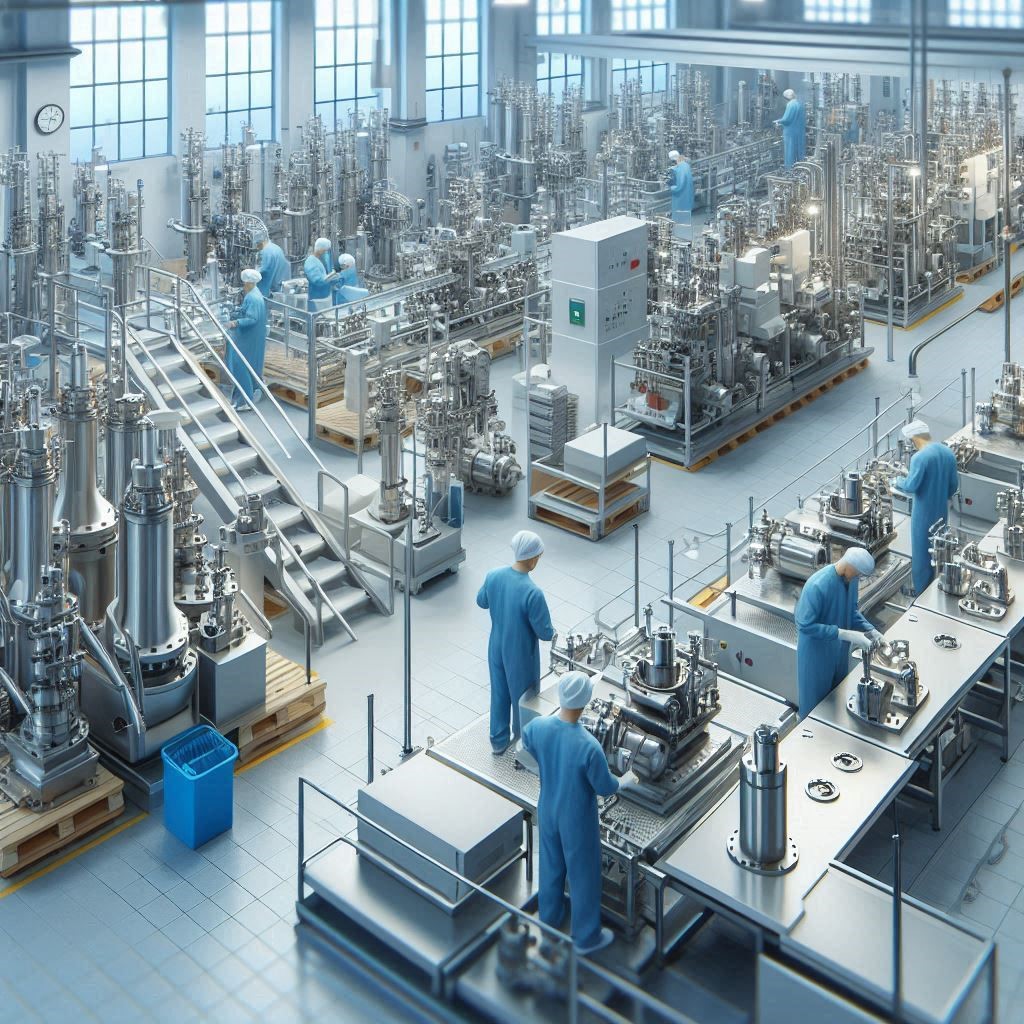Hygienic pumps and valves are indispensable components in industries where maintaining cleanliness and product integrity is critical. These specialized devices are designed to meet the stringent hygiene requirements of various sectors, ensuring that processes are efficient, safe, and compliant with regulatory standards. From food and beverage to pharmaceuticals and biotechnology, the applications of hygienic pumps and valves are diverse and vital. This article explores how these components are used across different industries, highlighting their role in ensuring quality and compliance.
The global hygienic pumps and valves Industry size is projected to grow from USD 2.3 billion in 2023 to USD 2.8 billion by 2028, at a CAGR of 3.7% during the forecast period. Hygienic valves and pumps are generally made of high-quality stainless steel and are designed to be used in applications that require sterilization or clean processing. The need to avoid or minimize the risk of contamination is leading to the adoption of such pumps
1. Food and Beverage Industry
Quality Control and Safety: In the food and beverage industry, hygiene is paramount to prevent contamination and ensure the safety of consumable products. Hygienic pumps and valves are used to handle and transfer liquids such as milk, juices, sauces, and syrups. These components are designed to prevent contamination by featuring smooth, crevice-free surfaces and easy-to-clean designs.
Applications: Hygienic pumps and valves are employed in various processes including:
- Milk and Dairy Processing: For transferring and homogenizing milk and dairy products.
- Beverage Production: In bottling and packaging systems for juices, soft drinks, and alcoholic beverages.
- Food Processing: In the production of sauces, dressings, and soups.
Compliance: Equipment used in this sector must comply with food safety standards such as those set by the FDA and NSF. Hygienic pumps and valves must meet these standards to ensure that they do not introduce contaminants into the product.
Download PDF Brochure @
https://www.marketsandmarkets.com/pdfdownloadNew.asp?id=145672200

2. Pharmaceutical Industry
Precision and Cleanliness: The pharmaceutical industry requires the highest levels of cleanliness and precision. Hygienic pumps and valves are crucial in ensuring the integrity of pharmaceutical formulations, including vaccines, injectables, and oral medications. These components are designed to handle highly sensitive and often expensive ingredients without risk of contamination.
Applications: Key applications include:
- Ingredient Transfer: For transferring active pharmaceutical ingredients (APIs) and excipients.
- Processing: In mixing, blending, and homogenizing drug formulations.
- Filling and Packaging: For sterile filling of medications into vials, syringes, and other containers.
Compliance: Pharmaceutical-grade hygienic pumps and valves must adhere to stringent regulations such as Good Manufacturing Practices (GMP) and the requirements set by regulatory bodies like the FDA and EMA.
3. Biotechnology Industry
Sterility and Reliability: The biotechnology sector demands equipment that ensures a sterile environment and reliable operation. Hygienic pumps and valves are used in processes involving biological fluids, cell cultures, and fermentation.
Applications: Typical uses include:
- Cell Culture Media Transfer: For moving growth media and other fluids used in cell culture processes.
- Fermentation: In the transfer of substrates and products during fermentation processes.
- Bioprocessing: For handling and processing of biological products like enzymes and proteins.
Compliance: Equipment used in biotechnology must comply with regulations such as the FDA’s Biologics Control Act and other industry-specific standards to ensure safety and efficacy.
4. Cosmetics Industry
Product Integrity and Efficiency: In the cosmetics industry, Key Features of hygienic pumps and valves ensure the production of high-quality products while maintaining cleanliness. These components are used in the production of creams, lotions, and other personal care products.
Applications: Key applications include:
- Ingredient Mixing: For blending various cosmetic ingredients.
- Filling and Dispensing: In the packaging of creams, gels, and lotions.
- Processing: For handling and transferring cosmetic formulations during production.
Compliance: The cosmetics industry requires equipment that meets regulatory standards for safety and hygiene, such as those set by the FDA for cosmetics.
5. Chemical Industry
Durability and Performance: In the chemical industry, hygienic pumps and valves are used to handle corrosive and hazardous chemicals. These components must be durable and resistant to chemical attack, while also maintaining high standards of hygiene.
Applications: Common uses include:
- Chemical Transfer: For moving chemicals between tanks and processing units.
- Production: In the mixing and blending of chemical formulations.
- Packaging: For filling chemical products into containers.
Compliance: Equipment in the chemical industry must meet safety and environmental regulations, such as those set by OSHA and other regulatory bodies, to ensure safe handling and processing of chemicals.
Hygienic pumps and valves are critical in various industries where maintaining cleanliness and adhering to regulatory standards are essential. Whether in food and beverage, pharmaceuticals, biotechnology, cosmetics, or chemicals, these components play a crucial role in ensuring product safety, quality, and compliance. By selecting the right hygienic pumps and valves for specific applications, industries can enhance operational efficiency, meet stringent hygiene standards, and ultimately deliver safe, high-quality products to their customers
